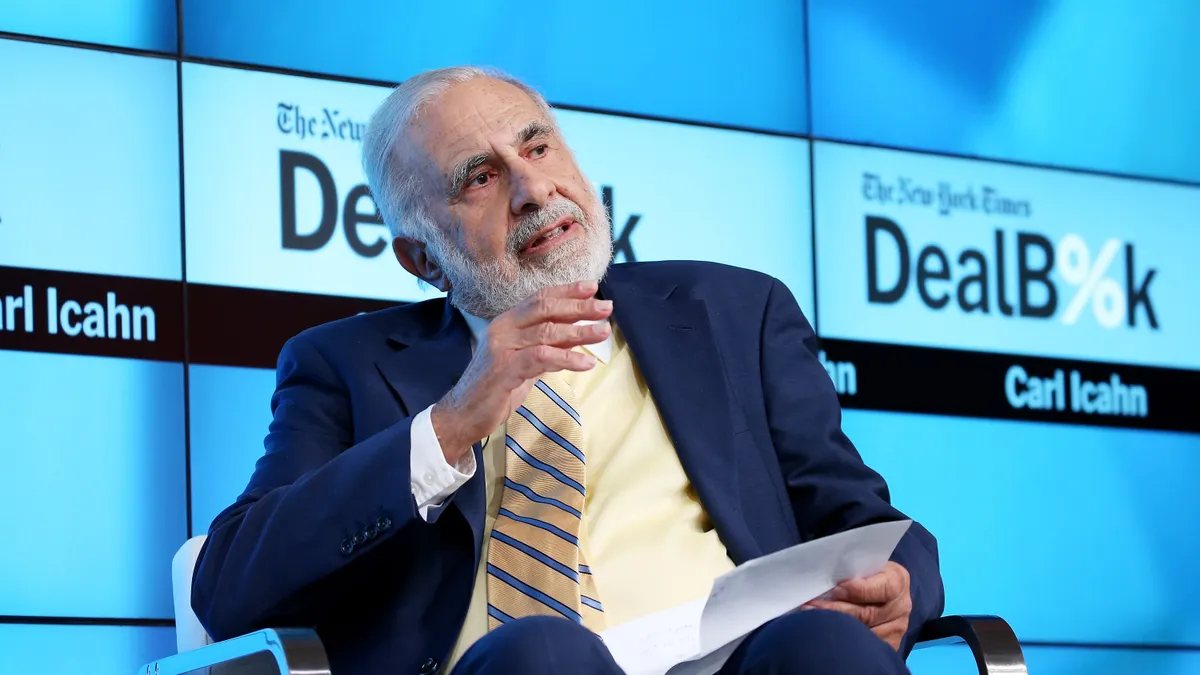Dive Brief:
- Glass Lewis, a proxy advisory firm, recommends that Illumina shareholders withhold their vote for CEO Francis deSouza and board chair John Thompson, and select two candidates proposed by activist investor Carl Icahn.
- Icahn seeks to replace three Illumina board members — deSouza, Thompson and physician Robert Epstein — for their handling of the acquisition of liquid biopsy firm Grail despite regulatory opposition.
- In its report sent by email, Glass Lewis also recommends that investors vote against the company’s executive compensation package, noting a disconnect between pay and performance.
Dive Insight:
The recommendation that shareholders withhold votes from deSouza and Thompson because of the Grail transaction, performance concerns and limited accountability, reinforces Icahn’s claim that management needs to change direction to restore shareholder value. It comes as Icahn and Illumina management wage a proxy battle ahead of board elections at the company’s May 25th annual meeting.
In their place, the firm recommended two of Icahn’s nominees, former Icahn Group employee Vincent Intrieri and current employee Andrew Teno, calling them credible shareholder advocates with public board experience. Glass Lewis recommended against voting for Icahn’s third nominee, current employee Jesse Lynn, citing what they called “possible overextension.”
"We disagree with Glass Lewis's recommendation and believe that the election of Carl Icahn's nominees would be disruptive to our core business,” Illumina spokesperson David McAlpine wrote in an emailed statement, recommending that shareholders vote in favor of all of the company's nominees.
Icahn earlier said that if elected, his board nominees would ask “the tough and sometimes uncomfortable questions.” Illumina argued Icahn’s nominees bring no additive skills or relevant industry experience, and that his plan for the company demonstrates a “lack of understanding of both Illumina and the genomics industry.”
Glass Lewis also raised concerns about Illumina’s proposed executive compensation with CEO deSouza making $26.75 million in 2022, an 87% increase from the previous year, despite the company’s shares falling after its acquisition of Grail in 2021.
That purchase, which never received regulators’ blessing, is at the crux of the dispute between Illumina and Icahn. Illumina bought Grail, which makes blood tests to detect cancer, for $8 billion in 2021, despite an ongoing review by European Union antitrust regulators. Now, it faces an antitrust order from the European Commission and a divestment order from the U.S. Federal Trade Commission, which it plans to appeal.
Two other proxy advisory firms, including Institutional Shareholder Services, are expected to issue recommendations, analysts with TD Cowen wrote in a research note on Thursday.
Illumina’s shares rose fell 1.5% to $206.30 in late morning trading on Thursday after earlier rising as much as 4.5% from yesterday’s close.











